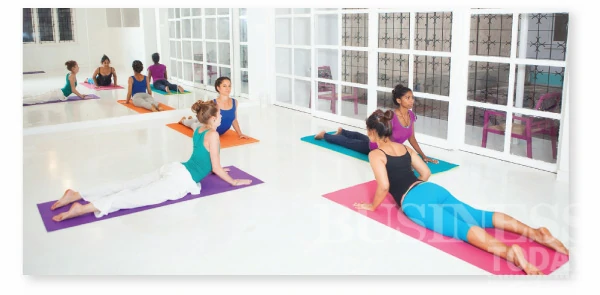
Why Yoga?
Why ever not? Yoga offers a holistic and well rounded practice that most people can engage with, regardless of age, level of ability or level of fitness. It provides strength, flexibility and toning for the body, energy by working with one’s breath and calm for the mind with its concentration and meditation practices.
What is Yoga?
The word Yoga, from the Sanskrit word yuj means to yoke or bind and is often interpreted as “union” or a method of discipline. Yoga combines postures (asana), breathing (pranayama), concentration (dharana) and meditation (dhyana). Today most people practice Yoga asana, which is a programme of physical postures designed to purify the body and provide the physical strength and stamina required for long periods of meditation.
What does Om mean?
Om is a mantra, or vibration, that is traditionally chanted at the beginning and end of Yoga sessions. It is said to be the sound of the universe. What does that mean? Everything that exists pulsates, creating a rhythmic vibration that the ancient yogis acknowledged with the sound of Om. We may not always be aware of this sound in our daily lives, but we can hear it in the rustling of the trees or the waves on the shore. As we chant Om, it takes us for a ride on this universal movement, through our breath, our awareness and our physical energy, and we begin to sense a bigger connection that is both uplifting and soothing.
How many times per week should I practice?
Even if you only practice for one hour a week, you will experience the benefits. If you can do more than that, you will certainly experience more benefits. You will find that after awhile your desire to practise expands naturally and you will find yourself practising more and more.
Do I have to be vegetarian to practice Yoga?
The first principle of Yoga philosophy is ahimsa, which means non-harming to self and others. Some people interpret this to include not eating animal products, but this is a personal decision that must take into account one’s personal health issues.
How is Yoga different from stretching or other kinds of fitness?
Unlike stretching or fitness, Yoga is more than just physical exercise. In Yoga we connect the mind, body, and breath, which helps us to focus our attention. We become more aware of our experiences
from moment to moment.
The awareness that we cultivate is what makes Yoga a practice rather than a task or a goal to be completed. Your body will most likely become much more flexible by doing yoga, and so will your mind.
I’m not flexible—can i do Yoga?
Yes! You are a perfect candidate for Yoga. Many people think that they need to be flexible to begin yoga, but that’s a little bit like thinking that you need to be able to swim in order to take swimming lessons. Come as you are and you will find that Yoga practice will help you become more flexible. This newfound agility will be balanced by strength, coordination, and enhanced cardiovascular health, as well as a sense of physical confidence and overall well-being.
Why are you supposed to refrain from eating two hours before class?
In Yoga practice we twist from side to side, turn upside down, and bend forward and backward. If you have undigested food in your stomach you could feel uncomfortable. If you are afraid you might get hungry or feel weak during Yoga class, experiment with a light snack such as yogurt, a few nuts,
or juice about 30 minutes to an hour before class.
Is Yoga a religion?
Yoga is not a religion. It is a philosophy that began in India an estimated 5,000 years ago. Yoga sometimes interweaves other philosophies such as Hinduism or Buddhism, but it is not necessary to study those paths in order to practice or study Yoga. It is also not necessary to surrender your own religious beliefs to practice yoga.
What do i need to begin?
All you really need to begin practicing Yoga is your body, your mind, a bit of curiosity and an open heart.







